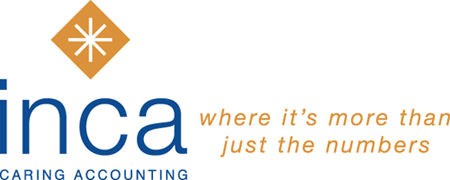Today, when you receive, pay or move money, or make any financial transaction, you leave a digital trail that anyone with the right permission can follow.
Given the current state of the UK economy, it’s not surprising that HM Treasury is making use of this capability. Increasingly, HMRC is using its powers to demand third parties and intermediaries share financial records with them, using the information provided to track individuals and companies who may be under-declaring their income.
We’ve touched on this topic before, discussing HMRC’s focus on income earned overseas through investments or property rental and the close interest it’s taken in individuals generating revenue by letting out their property through Airbnb. Just a few months ago, HMRC turned its attention to taxi drivers, using data supplied by online booking platforms to identify drivers it believes may not have reported their earnings accurately.
Now, it appears that HMRC has landlords in its sights.

If HMRC looks closely at your tax affairs, will they find everything in order?
Letters received recently by a number of landlords indicate that HMRC is taking a particular interest in landlords who may have under-reported their rental income or wrongly claimed Business Asset Rollover Relief on Capital Gains Tax.
- Under-declared rental income
If you’re a landlord and let out a residential property on an assured shorthold tenancy, you’re legally required to lodge any deposit paid to you by your tenant with one of three government-approved tenancy deposit protection schemes – Deposit Protection Service, MyDeposits or Tenancy Deposit Scheme.
These schemes are designed to ensure that good tenants are reimbursed in full at the end of their tenancy – but they also provide HMRC with an insight into landlords’ earnings.
From the content of the letters received, it appears that HMRC has requested and been provided with data from tenancy deposit schemes. Because landlords typically require 4 – 5 weeks rent as a deposit payment, HMRC can use the deposit data to estimate the total annual rental income a landlord is likely to be receiving and check this against their declared income.
The letters advise recipients that information from tenancy deposit schemes has been compared with their 2020-21 Self Assessment tax return and that HMRC believes they may have under-reported their income.
Don’t forget, when you let out a property you own jointly with your spouse or civil partner, the default position is that each of you must declare 50% of the rental income you earn. You can change this ratio, but if you don’t follow the correct process, and only one of you declares the income, HMRC can ask the other partner to bring their affairs up to date – going right back to when the property was originally acquired!
- Wrongly claimed Business Asset Rollover Relief
The letter also reminds landlords that if they’ve sold or disposed of a rental property recently, they may also have to pay Capital Gains Tax on any profit they made.
When a business asset is sold, and the funds are used to invest in another asset, claiming Business Asset Rollover Relief can delay the point at which Capital Gains Tax has to be paid. Crucially though, property letting businesses are not eligible for this relief unless the properties being disposed of and reinvested in qualify as furnished holiday lettings.
Link to blog 194 Aug 2022: Couples Jointly Owning Rental Property: Are You Both Declaring Your Income & Could an Ownership Split Adjustment Reduce Your Tax Liability?
What should you do if you’ve given HMRC incorrect information?
Like the Canadian Mounties, HMRC always get their man in the end. If you’ve given incorrect information in your Self Assessment tax return, there’s little doubt that your error will eventually catch up with you. There will be financial consequences in the form of penalties and/or fines, but you’re likely to be treated much more leniently if you take the initiative and fess up – rather than making HMRC do the hard work in finding you.
Do you think you may have misled HMRC by under-declaring rental income or claiming Rollover Relief to which you were not entitled? If so, you need to contact your accountant for professional advice as soon as possible.
Don't Wait for HMRC to Come Knocking: Inca Can Help You Put Your House in Order!
If you think (or know) that you’ve not declared all your rental income or claimed Rollover Relief you weren’t entitled to, you need to put things right before HMRC contacts you and begins asking awkward questions.
Take the first step to putting things straight today. Get in touch to arrange an initial chat and find out how we can help you. Call us now on 01235 868888 email us at [email protected]




